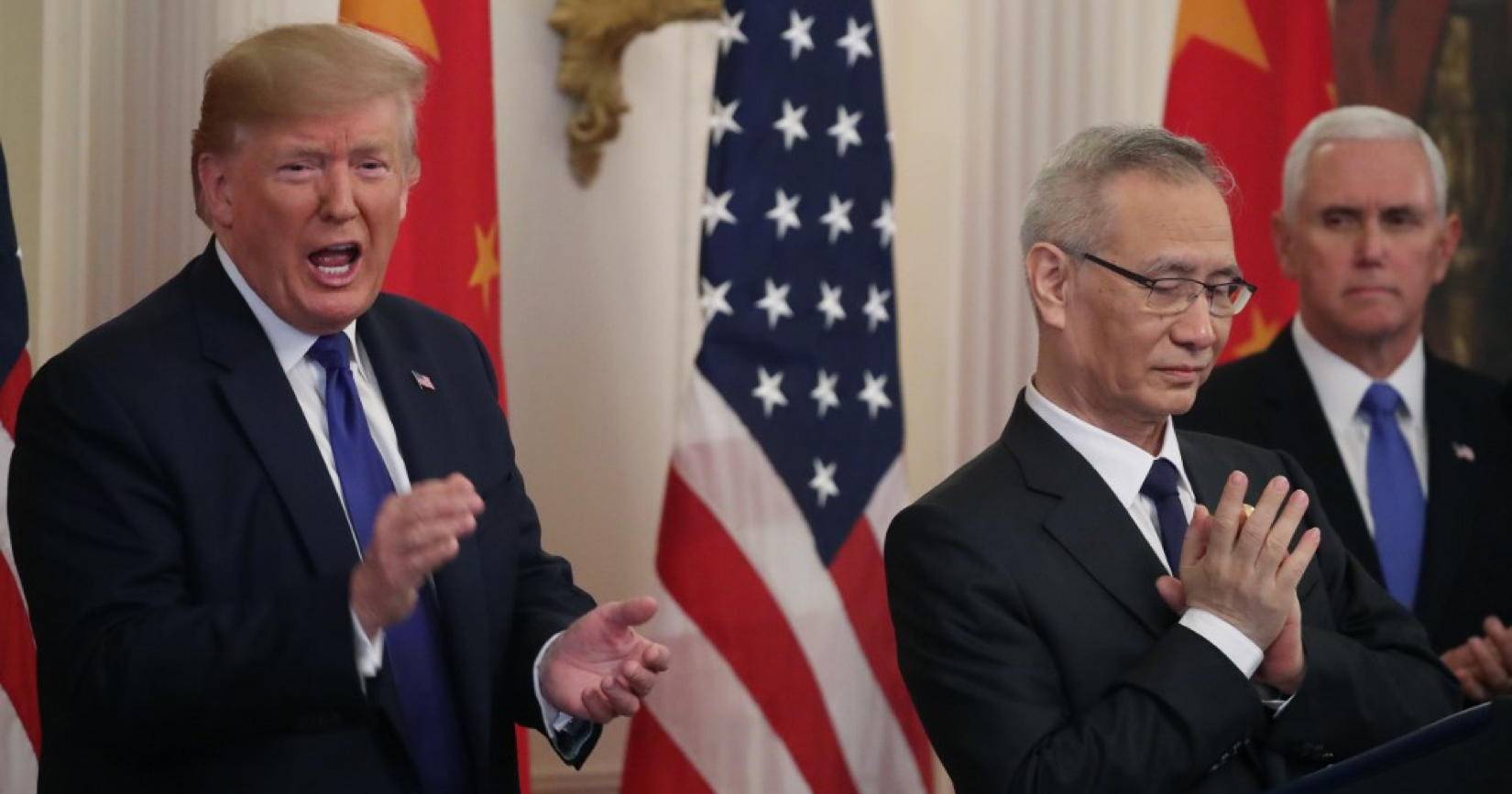On Jan. 16 (Singapore time), the United States and China signed an initial trade deal, dubbed "Phase One", aimed at easing the trade war between the two countries that has slowed economic growth worldwide.
According to CNN, here's what the deal entails:
The US
- Will reduce existing tariffs on US$120 billion (S$161.5 billion) in Chinese products, from 15 per cent to 7.5 per cent.
- Will stop additional tariffs on US$160 billion (S$215.4 billion) worth of Chinese electronics and toys, agreed earlier.
China
- Will buy an additional S$12.5 billion (S$16.8 billion) in US agricultural products in year one.
- Will buy an additional S$19.5 billion (S$26.2 billion) of the same in year two.
- Will relax requirements for banking access.
- Will remove a barrier requiring companies to sell technology for access.
- Will implement anti-counterfeiting measures, with penalties for those who break them.
However, the deal does not require China to change its existing laws.
The two countries also reaffirmed commitments not to devalue their currencies for competitive advantage.
More purchases of agricultural products
These additional purchases are part of a broader US$200 billion (S$269.2 billion) package including manufactured goods and energy imports by China.
The Chinese have also agreed to specifically include soybeans, pork, wheat and cotton under the increased purchases of the new deal.
However, despite their commitments to buy more products, CNN noted that China did not make specific commitments to reduce tariffs on goods imported from the U.S.
Who benefits?
The deal is good news for the Trump administration, as it will likely benefit farmers in the Midwestern states, who could be a factor in the presidential election later this year.
Prior to this deal, and in retaliation for U.S. tariffs, China imposed tariffs of their own on U.S. agricultural products, among others.
The Trump administration has spent as much as US$28 billion (S$37.7 billion) in "tariff relief" for farmers who saw their exports to China decline.
Increased trade between the two giants is also likely to result in increased growth for Singapore, which experienced a slowdown in growth in 2019 due in part to the U.S.-China trade war.
The next round of trade talks is expected to begin soon.
Related story
Top image from AFP.
If you like what you read, follow us on Facebook, Instagram, Twitter and Telegram to get the latest updates.
